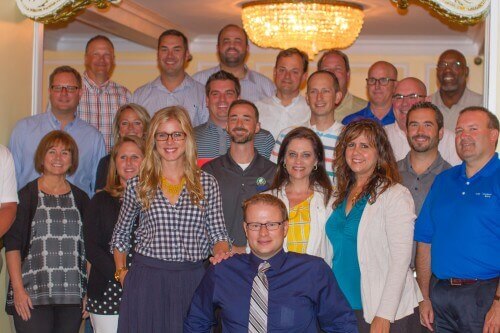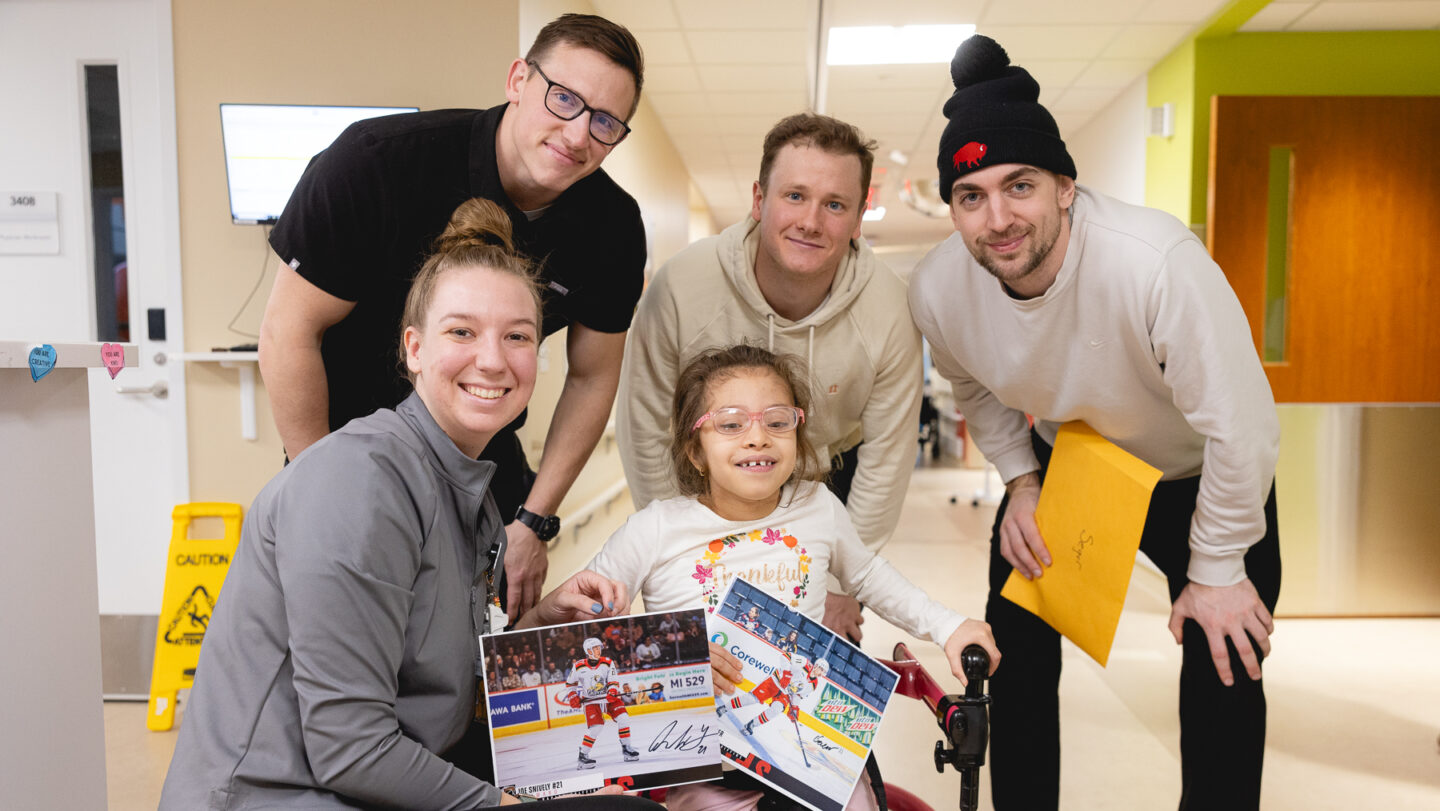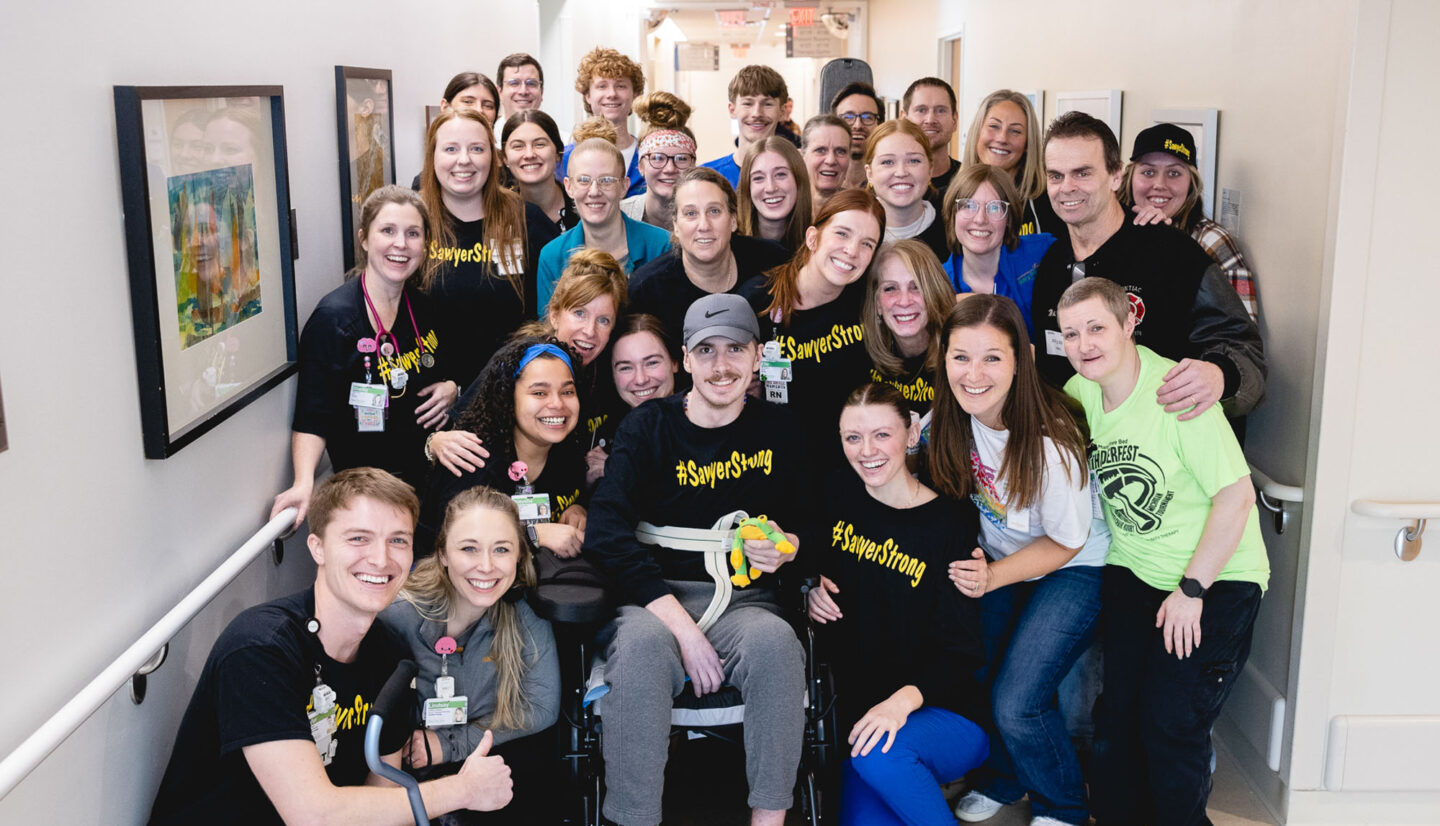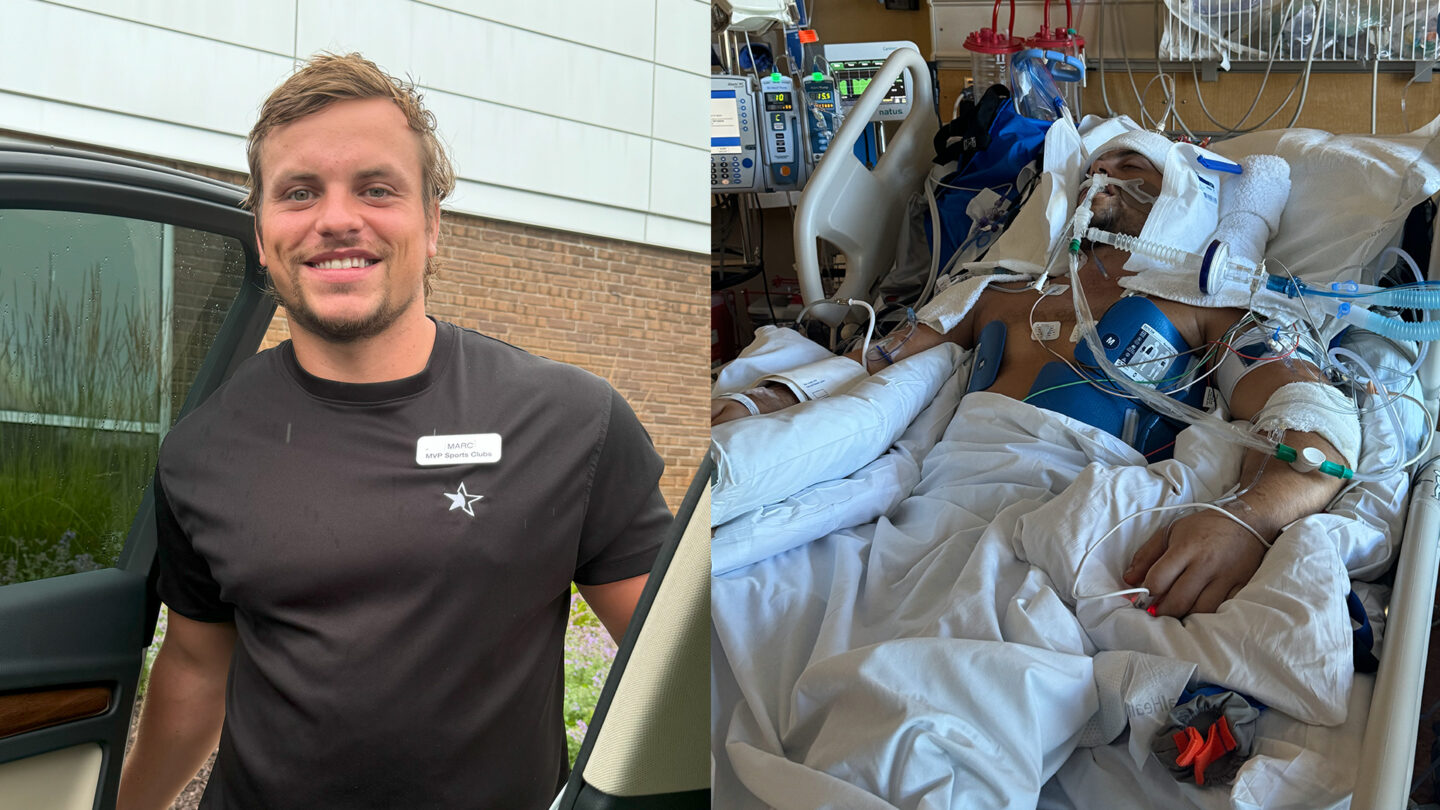Posted on August 13, 2015
Wheelchair & Adaptive Sports Program named as beneficiary of Sports Legacy Fund
 The Mary Free Bed Wheelchair & Adaptive Sports Program (WAS) has been named as the beneficiary of the National Association of Sports Commissions’ (NASC) Sports Legacy Fund in 2016.
The Mary Free Bed Wheelchair & Adaptive Sports Program (WAS) has been named as the beneficiary of the National Association of Sports Commissions’ (NASC) Sports Legacy Fund in 2016.
WAS has previously worked with the West Michigan Sports Commission (WMSC), a member of NASC. Grand Rapids will host the 24th NASC Sports Event Symposium April 3-7, 2016. Historically, the national organization has selected an organization in the hosting community to be the beneficiary of the Sports Legacy Fund.
 The announcement was made August 11 during an NASC event held in downtown Grand Rapids. WAS representatives were in attendance to offer a brief presentation on the program to NASC officials from around the country and local WMSC leadership.
The announcement was made August 11 during an NASC event held in downtown Grand Rapids. WAS representatives were in attendance to offer a brief presentation on the program to NASC officials from around the country and local WMSC leadership.
“We are so fortunate in the community of Grand Rapids to have organizations like Mary Free Bed and the West Michigan Sports Commission who have the common goal of providing sporting opportunities for athletes who want to stay healthy, live life to the fullest and who never say never,” says WAS Manager Maria Besta.
A raffle and silent auction are used to generate money for the Sports Legacy Fund. Last year’s recipient received $20,000. WAS officials say the Sports Legacy Fund will help athletes of all ages and ability levels in the Grand Rapids community.
“Choosing Mary Free Bed Wheelchair and Adaptive Sports as the NASC Sports Legacy beneficiary means that our athletes are provided more opportunities to participate in the many sports we offer without a financial burden, allowing them to gain confidence, empowerment and life skills,” says WAS Sports Coordinator Alicia Hass.
Approximately 700 people — 400 children and 300 adults — participate in WAS team sports, clinics and camps each year. Opportunities range from a free annual sports camp for children and teens, to highly competitive team sports.
“Playing wheelchair tennis through Mary Free Bed Wheelchair & Adaptive Sports has given me a fun, competitive and healthy activity, not to mention a great group of teammates to connect with,” says Steve Draft-Peppin, who recently returned to competitive wheelchair tennis after a 20-year break. “The organization also provides the resources required for a sport that involves many expenses including travel, court time, high-quality coaching and specialized equipment.”





